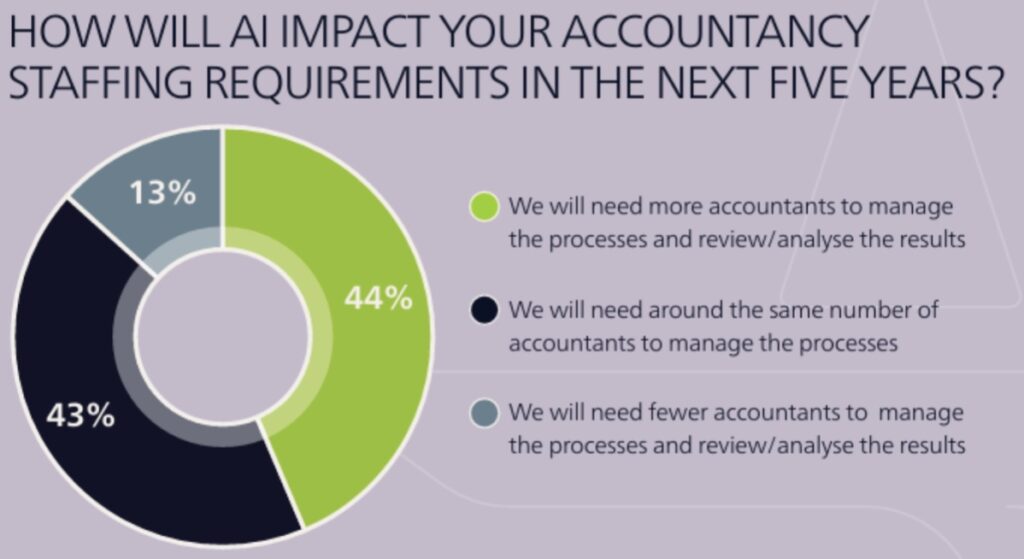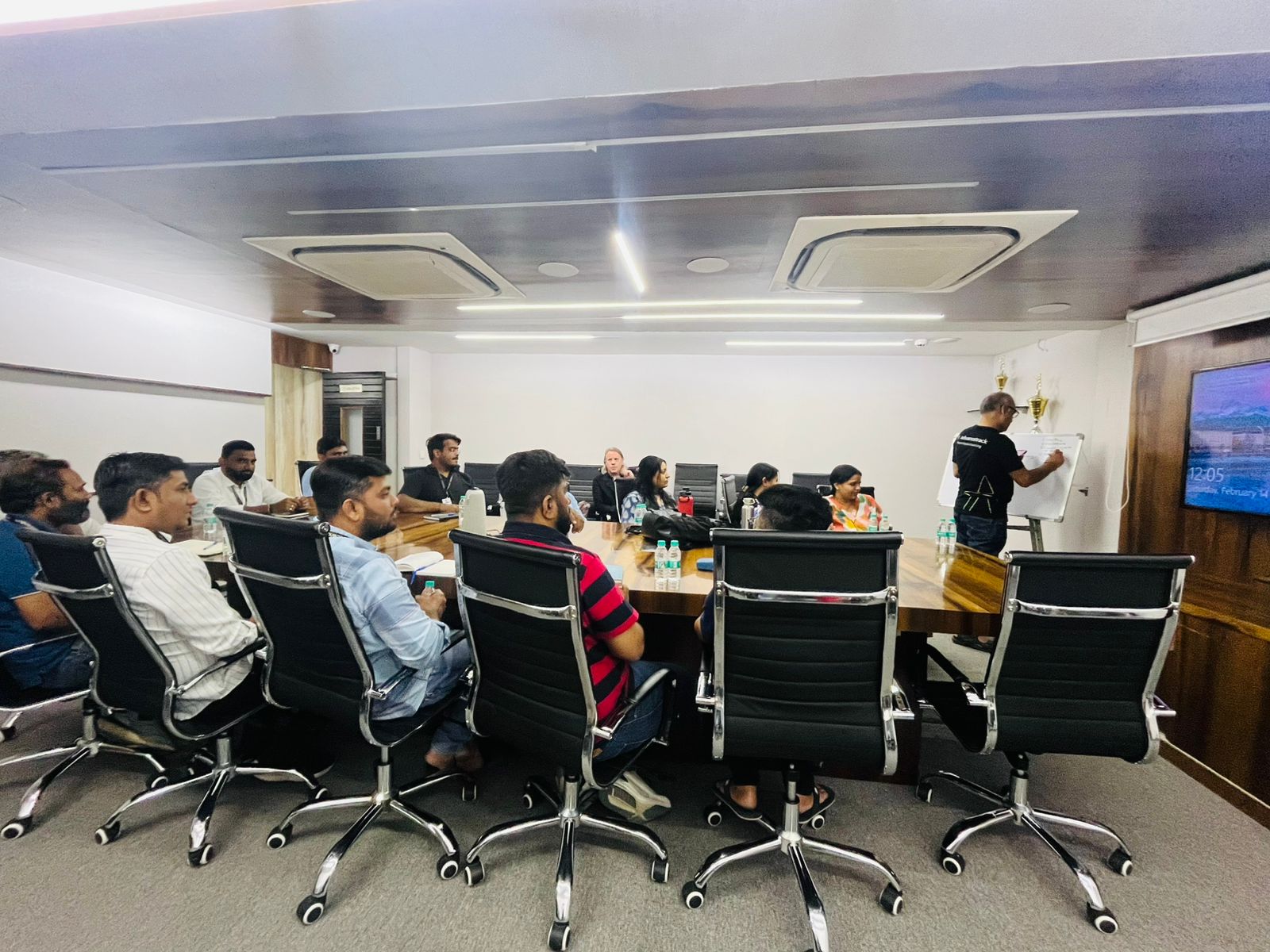
The latest Accounting Talent Index highlights the tension between AI and its impact on a talent shortage on the profession. But Kevin Reed suggests that recruiting more accountants isn’t necessarily the answer.
There has been a lot said about AI’s potential impact upon staffing in accountancy in recent months. Some might say ‘too much’. So, why would I write about AI?
I had the honour of working on Advancetrack’s Accounting Talent Index 2025, a report chock-full of stats and insight.
While there’s some great detail around practice leaders’ attempts to mitigate against what is a serious talent shortage in the global profession, I was drawn to the relatively simple question around AI. The question being: ‘how will AI impact your accountancy staffing requirements in the next five years?’

(Source: Advancetrack Accounting Talent Index 2025)
What I really like about this question is that, while it’s straightforward, it has provided findings that highlight a myriad of possibilities for the profession in an AI world. In fact, the response raises so many questions that it’s difficult to know where to start…
Minority report
So, let’s go with the 13% that believe we’ll need fewer accountants. My overall feeling is conflicted here. While I’d like to say that they’re wrong, I think that, on the balance of probability, they’re are most likely correct.
Why I believe that is quite complex, but certainly not an indicator that ‘accountancy is dying’. And I’m not saying accountants will become less important.
We know there’s a talent shortage (both the Talent Index 2024 and 2025 highlight it starkly). We’ve also seen less-than-flattering statistics around student numbers across the Western world in recent times. Other jurisdictions are struggling to provide the number of outsourced/offshored accountants to fill the gap.
How much of the talent shortage is strictly down to career concerns about the impact of AI, rather than stilted salaries for PQs and NQs, is a moot point. But I don’t see a world ahead where more accountants will magically appear in greater droves to undertake the work currently required.
A step change for the profession
But, what if the work undertaken by accountants changes? This is the premise for the 44%: that automation and Agentic AI undertake more of the donkey work and create insights that will require both review, and then further actions, to be taken.
This is not an unreasonable assumption. The core of accountancy training is not wildly different to that of 50 years ago. And these qualifications have always been passports – many have gone on post-qualification to wildly varied careers in practice, commerce, or the third sector.
But I’m not convinced that the roles created by AI will necessarily mean more accountants. It’s very possible that practices will need more hires – and I hope that AI gives both practices and finance functions a platform for growth. But the data scientists, prompt engineers and AI trainers… I see these roles as science/tech-focused (I note the irony in relation to the huge number of US tech job losses in 2025).
Resourcing for growth
As for the 43% that believe they’ll need the same number of accountants: this is entirely possible. My big concern with that premise is the ongoing struggle firms already have as far as resourcing is concerned. And, what role these accountants have is a really interesting one: will the split be even between technician/manager/client handler? Or will the technician roles fall into the ‘hands’ of AI agents?
As such, the skills and people mix for accountancy practices, finance functions and even outsourcers, will change at a rapid rate.
I am hopeful for the accountancy profession. But there is serious work ahead to attract the right people into the profession, and serious consideration about how the core accountancy, tax and audit skills that are taught fit into its future. And what else is required.
Kevin Reed is editor of Financial Accountant magazine and a freelance journalist. His views may not align with those of Advancetrack.






